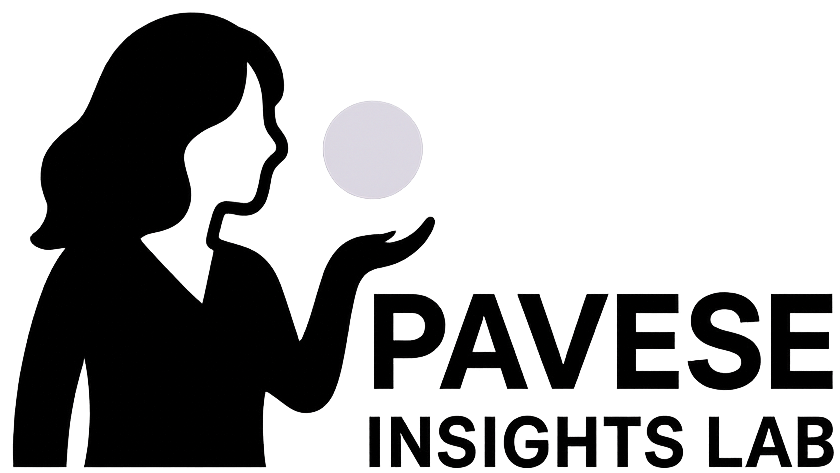From Founder to CEO: Closing the Skills-to-Stage Gap
Early on, technical brilliance is the ticket in. You’re building, coding, designing, iterating. But the moment your team grows, your primary job shifts from solving problems yourself to enabling others to solve them. Research on founder replacement underscores this transition: firms often replace technical founders when leadership demands outstrip their ability to manage teams. The skill isn’t lost — it must be redirected into hiring, coaching, and culture-setting.
Takeaway: Your technical edge got you started, but your leadership edge keeps you in the role.
Stage Impact: Validation & Early Growth — when first employees join, your management skills matter as much as your code.
Reflection prompt: Am I still measuring my value by what I produce, or by how I multiply the output of others?
Tension #2 Do-It-All Generalist vs. Focused Specialist
In the earliest phase, being a generalist is survival. You are product, marketing, HR, and finance. But as the company grows, this “do it all” mode becomes a bottleneck. Scaling requires specialists with deeper expertise — and your job is to let them be better than you. It’s essential to know when to bring in the complementary skills that enable your business to build to the next level, and allow you to scale yourself through greater focus.
Delegation isn't a weakness; it’s the only way to widen the bandwidth of the company.
Takeaway: Every hour you keep doing it all is an hour your company stays small.
Stage Impact: Scaling (Series A–B) — when functional leaders need to be hired and trusted to own their domain.
Reflection prompt: Where am I still holding on to roles that someone else could do better?
Tension #3 Control & Decision-Making vs. Trust & Adaptability
In the beginning, speed is everything. Decisions are quick, instinctual, centralized in you. Over time, though, volume and complexity outpace one brain. Trusting others to decide — and building systems that make decision-making repeatable — is the only path forward.
Evidence from research on decision fatigue shows that over-reliance on one leader leads to deteriorating quality of judgment. Coupled with an overwhelming amount of information and choice at speed, decision quality and even motivation becomes worse. Structures and trust extend your effectiveness, while clinging to control erodes it.
Takeaway: If you’re the system, the system will break.
Stage Impact: Scaling & Organization Building — as teams multiply, decision rights and processes must be distributed.
Reflection prompt: Do I have a decision system, or am I still the system?
Tension #4 Being Likable vs. Commanding Presence (especially for women)
Founders — and especially women — are often told they need to walk a fine line: be likable but not “too soft,” authoritative but not “too assertive.” Research shows this double bind is real, but it also misses the deeper truth: what makes leaders effective isn’t striking a perfect pose. It’s demonstrating consistent behaviors that earn trust and inspire others. Your effectiveness depends more on how you lead than on what you personally ship.
Emotional intelligence (EQ) matters more than projecting an image of either warmth or gravitas. Teams don’t thrive because their leader hits the “just right” tone; they thrive because their leader listens, responds, understands other’s emotions, can regulate their own and acts with integrity. Presence isn’t about optics — it’s about deeply human skills and behavior repeated over time.
Takeaway: Likability may get you heard; presence ensures you’re followed. No one likes a talking head.
Stage Impact: Growth through Scaling — when founders begin managing managers and need to hold executive and investor trust.
Reflection prompt: How can I show up as both approachable and authoritative — without letting others define the boundary for me?
Tension #5 Hands-On Doing vs. Visionary Leading
Perhaps the hardest transition of all: moving from operator to orchestrator. In the early stage, you prove credibility by being in the weeds. But scaling demands a new identity: the leader who sets vision, inspires belief, and guides through storms.
Amy Edmondson’s research on psychological safety shows that visionary leaders who create environments of candor and trust unlock adaptability across their teams. Your job becomes less about answers, more about enabling your people to surface the truth and act on it.
Takeaway: If you stay in the weeds, no one else will see the horizon.
Stage Impact: Maturity & Exit — when your role shifts to vision, governance, and external orchestration.
Reflection prompt: Where am I stuck proving I can do it, when my company needs me to show where we’re going?
Closing the Gap: Your Next Move
These tensions don’t disappear — they evolve. Every founder hits the skills-to-stage gap; the only question is whether you’ll cross it or be replaced by someone who does.
Here are three questions to carry forward:
What skills got me here that might actually hold me back at the next stage?
Where do I need to evolve my identity — not just my capabilities?
Who can help me make this transition before the company forces it on me?
At Pavese Insights Lab, I work with founders through these exact transitions. The product may spark your company, but your growth as a leader is what keeps it alive.
👉 Download my free Founder Tool, “Closing the Skills-to-Stage Gap: Founder to CEO,” for practical tools to close your skills-to-stage gap — and reach out if you’re ready to step fully into the CEO your company needs.
Article Photo by Farnoosh Abdollahi on Unsplash


